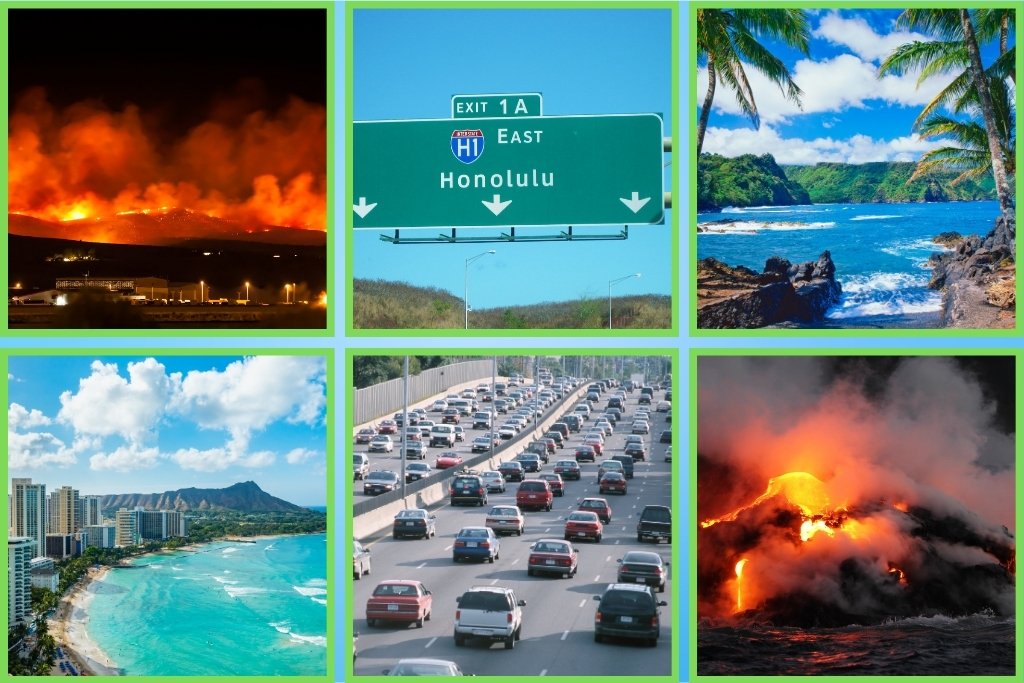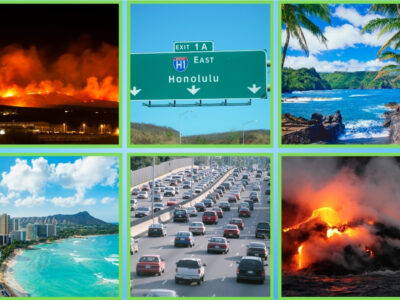Last summer, the town of Lahaina in Maui was gripped by a devastating wildfire that claimed the lives of at least 99 individuals and trapped thousands. This tragic event is a stark reminder of the increasing climate risks we face.
As we approach this summer, a group of 13 young Hawaiians is gearing up for a groundbreaking legal battle against the Hawaiʻi Department of Transportation. Accusing the department of not doing enough to curb greenhouse gas emissions, these youth plaintiffs are taking their fight for the environment to the courts on June 24.
The Allegations and the State’s Response
The crux of the matter is simple: the plaintiffs argue that Hawaiʻi’s transportation system is still too dependent on fossil fuels, and this negligence is violating their constitutional right to a “clean and healthful environment.” On the flip side, state lawyers argue that climate change is a complex issue better suited for policymakers, not judges.
Echoes of Montana’s Climate Trial Victory
Last summer also witnessed a landmark victory for 16 young Montanans who challenged their state’s climate policies. The Hawaiʻi case shares similarities with Montana’s, as both involve young activists, represented by the public interest law firm Our Children’s Trust, fighting for their environmental rights. Both states are grappling with the harsh realities of climate change, despite their commitments to preserving natural beauty.

Hawaiʻi’s Political and Environmental Landscape
In Hawaiʻi, the Democratic Party has a stronghold on state politics, shaping climate policies for years. The state has set ambitious goals for carbon neutrality by 2045 and is keen on decarbonizing its transportation sector. However, the youth plaintiffs argue that these efforts are not moving quickly enough.
Green Amendments and Hawaiʻi’s Unique Position
While Hawaiʻi’s constitution does protect environmental rights, it does so outside of the state Bill of Rights. This distinction forms the backbone of the youth plaintiffs’ case, as they seek to prove that the climate crisis is directly impacting their lives and infringing on their constitutional rights.
Personal Stories of the Plaintiffs
Among the plaintiffs is Navahine F., a 16-year-old Native Hawaiian whose family’s farming traditions are threatened by climate change. Another plaintiff, 13-year-old Kaliko T., lost her home to Tropical Storm Olivia and has been battling climate anxiety since childhood.
The Legal Battle Ahead
The plaintiffs are demanding that the court recognize the state’s failure to protect their environmental rights and are calling for concrete actions to transition away from fossil fuels. They also seek the appointment of a special master to ensure the state adheres to these demands.
The state, however, points the finger at fossil fuel companies and argues that Hawaiʻi alone cannot tackle global emissions. They also believe that climate policy should be shaped by legislators, not the judiciary.
The Judge’s Stance and Previous Climate Case Involvement
Despite the state’s arguments, Judge Jeffrey P. Crabtree has allowed the case to proceed, recognizing the judiciary’s role in upholding constitutional guarantees. Judge Crabtree is no stranger to high-profile climate litigation, having recently presided over Honolulu’s case against Big Oil companies.
Comparing Arguments: State vs. Big Oil
It’s interesting to note that the state’s defense echoes Big Oil’s stance that climate change should be addressed by Congress, not the courts. This parallel raises questions about how this argument might affect Honolulu’s separate lawsuit against the fossil fuel industry.
Looking at the Broader Climate Lawsuit Landscape
While the Montana case was a significant win for youth activists, it’s now on appeal, and other cases have faced setbacks. The trailblazing Juliana v. United States case seems to have reached its end, and another case in Los Angeles was dismissed for lack of standing.
Hawaiʻi’s Environmental Court and the Upcoming Trial
The upcoming trial will be held in Hawaiʻi’s Environmental Court, which has jurisdiction over the state’s natural resources. Set to begin on June 24, the trial could be overshadowed by other major events, but it remains a crucial moment for environmental activism and the youth plaintiffs’ fight for a sustainable future.
As we watch the trial unfold, it will take place against a backdrop of extreme weather events, highlighting the urgency of the issues at stake. The youth of Hawaiʻi stand ready to make their voices heard, advocating for action that could shape environmental policy for generations to come.
Did you miss our previous article…
https://pardonresearch.com/?p=73714
